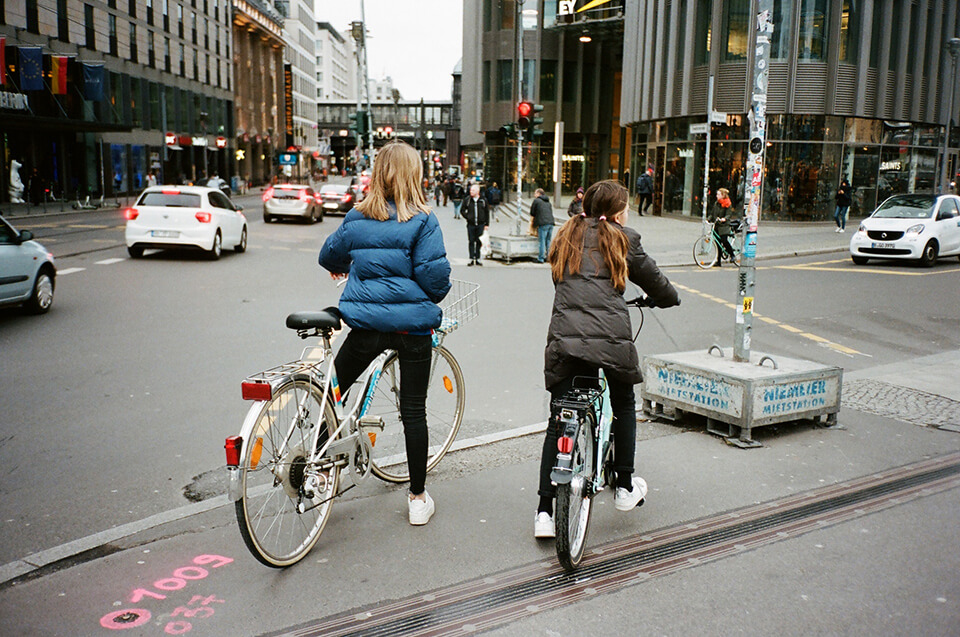- Modelling Emerging Transport Solutions for Urban Mobility
- Consortium: EMT Madrid (project coordinator), Nommon (technical coordinator), Dimos Thessalonikis, CERTH, Stad Leuven, TML, Stadt Regensburg, TUM, Aimsun, University of Deusto, POLIS and UITP.
- 2019 – 2022
- h2020-momentum.eu

The project
Information and Communication Technologies (ICT) and emerging mobility solutions such as Mobility as a Service (MaaS), Connected Automated Vehicles (CAVs), new shared mobility services, and demand responsive transport are bringing radical changes to urban mobility. The MOMENTUM project aimed to develop a set of new data analysis methods, transport models, and planning support tools to capture the impact of these new transport options on the urban mobility ecosystem, in order to support cities in the task of designing the right policy mix to exploit the full potential of these emerging mobility solutions.
Objectives
The overall goal of MOMENTUM was to provide cities with different solutions which could help them capture the impact of new transport options and ICT-driven behavioural changes on urban mobility in order to design the right policy mix to exploit the full potential of emerging mobility solutions. The specific objectives of MOMENTUM were the following:
- Identify a set of plausible future scenarios for the next decade to be taken into account for mobility planning in European cities, considering the introduction of new mobility schemes and disruptive technologies, such as CAVs, and their expected level of penetration.
- Characterise changes in user behaviour and emerging activity-travel patterns, with special focus on the demand for new forms of transport and the mobility needs of the population, including vulnerable groups, by profiting from the increasing availability of high-resolution spatio-temporal data collected from personal mobile devices and digital sensors.
- Develop comprehensive data-driven predictive models of the adoption and use of new mobility concepts and transport solutions, in particular MaaS and shared mobility, and their interaction and complementarity with public transport.
- Provide transport simulation and planning support tools able to cope with the new challenges faced by transport planners, by enhancing existing state-of-the-art transport simulation software with the new data analysis methods and travel demand models developed by the project.
- Demonstrate the potential of the newly developed methods and tools to support collaborative mobility planning by testing the impact of a variety of policies and innovative transport services in four European cities with heterogeneous sizes and characteristics: Madrid, Thessaloniki, Leuven, and Regensburg.
- Provide guidelines for the practical use of the methods, tools, and lessons learnt delivered by the project in the elaboration and implementation of Sustainable Urban Management Plans (SUMPs) and other planning instruments, including specific recommendations for taking advantage of the opportunities opened by emerging transport technologies.
Nommon’s role
Nommon played a pivotal role within the MOMENTUM project, serving as the technical coordinator. Additionally, Nommon took the lead in defining the ‘Conceptual framework’ and actively participated in the ‘Data collection and analysis’ and ‘Modelling of emerging mobility solutions’ activities. During these activities, Nommon developed innovative artificial intelligence algorithms for the analysis and prediction of mobility data, with a specific focus on creating machine learning-based models for predicting the demand for shared mobility services.
Furthermore, Nommon was at the forefront of implementing the planning and decision support tools developed by MOMENTUM in the Madrid case study. In this capacity, Nommon applied predictive shared mobility demand models to assess their impact on optimising the deployment of the public bike-sharing service in new areas of the city. This effort resulted in more efficient and data-driven decisions for the expansion of the bike sharing service, ultimately benefiting the city’s residents and commuters.
Results
MOMENTUM delivered a comprehensive review of changes on mobility trends brought by the emergence of new mobility services, along with the associated challenges and opportunities for mobility modelling, planning, and managing. The project made significant advancements in two key areas: the analysis of travel behaviour by combining data fusion and machine learning techniques to extract mobility patterns from heterogeneous and sparse data sources; and the modelling of new transport solutions.
MOMENTUM advanced the state-of-the-art of policy instruments for mobility planning. The new data collection methods, models, decision support tools, and policy recommendations derived from the project empower cities to formulate more flexible and resilient policies that perform well under a range of fast changing and uncertain scenarios. User-friendly decision support tools facilitate the impact assessment and the comparison of different alternative policies. These have been shown with practical experiences of the project:
- The interaction between policy makers, modellers, and other stakeholders in the project’s community of practice have helped the participating cities to make progress in data driven policy making and the use of advanced modelling.
- The MOMENTUM solutions have helped in the design and planning of the deployment or expansion of different new services (shared mobility and demand responsive transport) in the MOMENTUM cities.
- The MOMENTUM partners have been contacted by the de transport authorities of different cities for support in the use of the project’s tools for the design of the strategy expansion of its public bikesharing system.

This project has received funding from the European Union’s Horizon 2020 Research and Innovation Programme under grant agreement Nº 815069.
